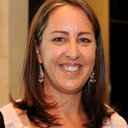mHealth in Cardiovascular Health Care.
Mots clés
Abstrait
Mobile health (mHealth) has been defined as medical and public health practice supported by mobile devices, such as mobile phones, patient monitoring devices and personal digital assistants. Cardiovascular mHealth is, arguably, leading the mHealth space, through innovation, research and implementation, and especially in the areas of prevention, cardiac rehabilitation and education. mHealth includes simple strategies, such as the use of short message service (SMS) or text messages in successful short-term smoking-cessation, weight loss and diabetes management programs. The recent Australian Tobacco, Exercise and Diet Messages (TEXT ME) randomised clinical trial addressed multiple cardiovascular risk factors. mHealth can also involve more complex strategies, such as smart phone applications (apps), global positioning systems (GPS) and Bluetooth technologies. Although many apps could be considered suitable for primary prevention, they are largely unregulated and most are not evidence-based. Some have been well-developed, such as the Food Switch app and an iPhone electrocardiogram (ECG) system. The "explosion" of apps has driven initiatives such as the Mobile Applications Rating Scale (MARS). More recently, the use of sensors to monitor and provide feedback to patients and healthcare providers is being explored. With almost two billion people currently owning a Smartphone, and 50% of adults (globally) predicted to own one by 2018, mHealth provides the prospect of delivering efficient, affordable healthcare services to widespread populations both locally and globally. In particular, it has the potential to reduce socioeconomic disparity and alleviate the burden of cardiovascular disease. There is now a need to rethink traditional health service structures and bioengineering capacity, to ensure mHealth systems are also safe, secure and robust.



